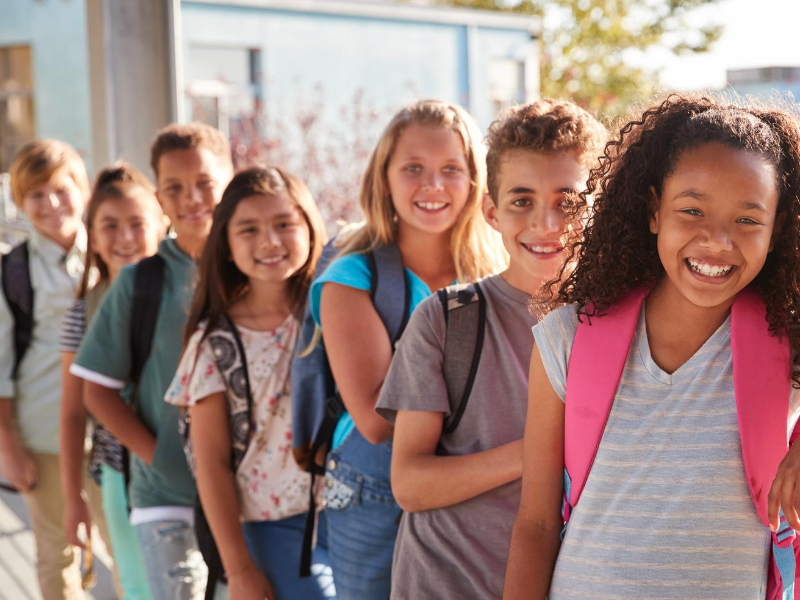Ashley* is a middle-class mom. She is married with three kids and, through a scholarship, has her children enrolled in a local well-respected private school. She was pleased to be able to provide her children with an excellent education and believed they were gaining an advantage in their academic career.
A few years into elementary school her son, John, was excelling academically but struggling with basic social and life skills. After a series of tests and meetings with doctors and experts, John was placed on the Autism spectrum. He was diagnosed as high-functioning, with a high IQ and all the potential to learn how to navigate a neurotypical world.
Ashley immediately withdrew John from the private school and enrolled him in the local public school.
Why? “Because Ashley believed public schools would offer better services for her child with special needs.” This is due, in part, to the Federal Individuals with Disabilities Education Act (IDEA), which provides funding to public schools specifically to meet the needs of students with disabilities and learning barriers.
Fostering Public Health
Long before the IDEA legislation, public schools were used as a way to foster public health and welfare. The earliest integrations of public education and welfare were introduced during the progressive era, starting in the 1890s and continuing into the 1930s. Progressive leaders advocated for the school curriculum to address matters such as health, recreation, and mental health (at the time called mental hygiene). On the heels of the progressive movement, the Truman administration signed the 1945 National School Lunch Act, which provided free or low-cost nutritionally-balanced meals to school children. Coupled with the work of the Freedman’s Schools established in the Reconstruction Period (1865-1877), the education system in the United States has a deeply established pattern of being a source for public health and welfare.
While there are certainly many middle-class students like John who have benefitted from the services established and developed in the last 150 years, the vast majority of students who rely on the school as a public health arena are living near the poverty line. According to The US Census report on poverty, one in six children live in poverty, making them the poorest age group in our nation. Children are also most likely to suffer the long-term effects of poverty such as poor educational outcomes, higher instances of injury and chronic illness, and diminished mental and emotional capacity. Each of these factors feed into a poverty loop that increases the likelihood of the next. For example, when a student has a chronic illness and diminished emotional capacity, they miss more days of school and are less able to make up the work from the time missed. Consequently, they fall further behind and are less likely to earn high enough grades to graduate and move into vocational training or college education. So the cycle begins again, as they are trapped in unstable and low-wage jobs, poor health care, and poor outcomes.
Georgia’s Educational Challenges
In Georgia, sixty percent of the student population qualifies for free or reduced-cost lunch. While free lunch may be offered at private schools, the marker is used to represent the over one million students who face a statistically higher risk for the long-term effects of poverty. And, as noted at the beginning of the blog post, the public school is a key welfare access point. When the public schools are inaccessible to families already facing significant barriers, the children lose not only academic instruction but a cascade of critical services. Safety, health, learning or development support, and nutrition are among just some of the key services that disappear along with daily instruction.
Those types of cascading losses have been brought into stark relief as the nation responds to the ongoing COVID-19 pandemic. It appears we have built a system that relies too heavily on a physical building for the delivery of services. And while new programs like Georgia’s P-EBT have begun to respond to the nutrition gap created by school closures, there remains the questions of how students will catch up academically, who will observe and report domestic abuse, and how students will access mental and social services.
A Better Way Forward
And these questions bring the focus toward a golden opportunity. As Georgia is forced to look at programs and services differently, we can disentangle the various services to improve the delivery and outcomes across the board. For example, under the old framework, any student could access free- or reduced-cost lunches at their local public school. However, some districts and schools provided a greater complement of services for students with individualized education plans (IEPs). The variances in services provided from district to district contributes to the cascade of poorer outcomes for students living in chronic poverty—but we have the opportunity to change this reality. In fact, Georgia already has systems in place that disentangle the range of services while ensuring the optimal outcome for the individual student through their state school, charter, and virtual school programs.
The public school will likely always be a public health arena but, as we are quickly learning, equitable public education and social services cannot be bound to the physical local school. We can and should continue to improve the academic, health, and social outcomes for the students of Georgia through creative, flexible, and more open methods of delivery.
Interested in how you can help support flexible and equitable options? Click here.
* Name changed to protect the identity of the individual






